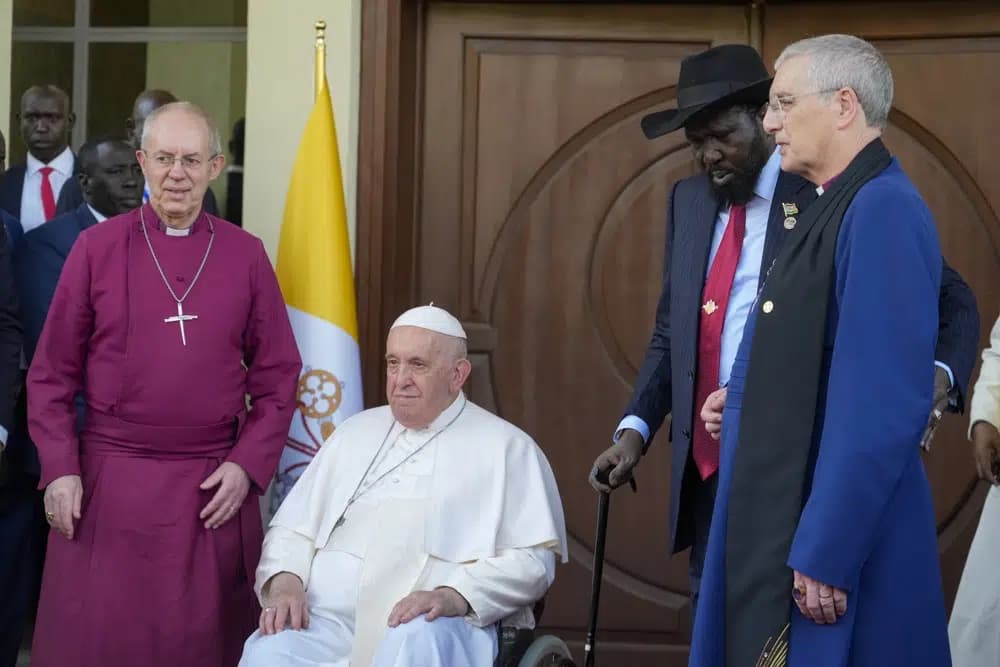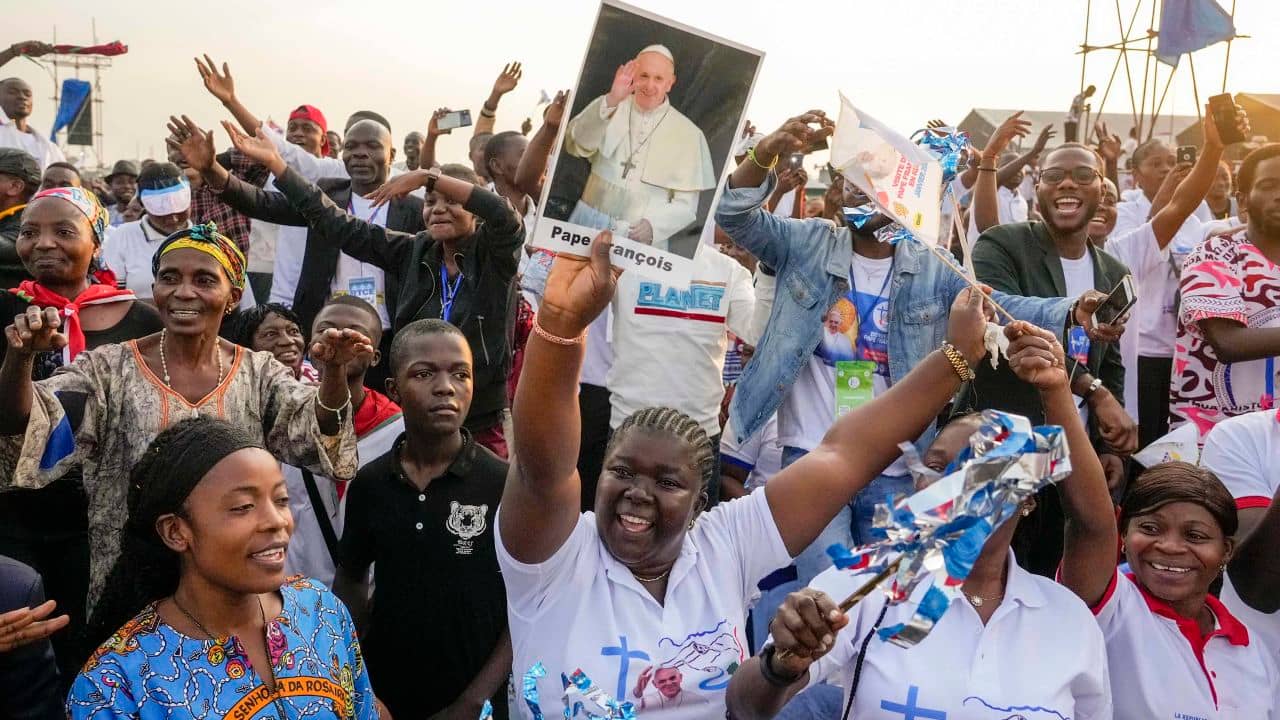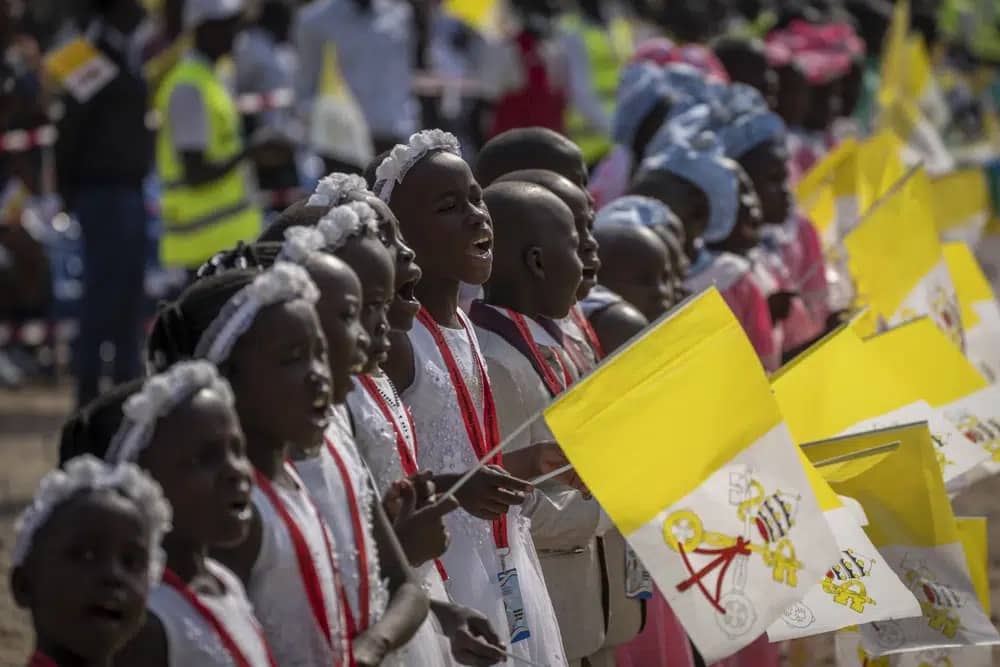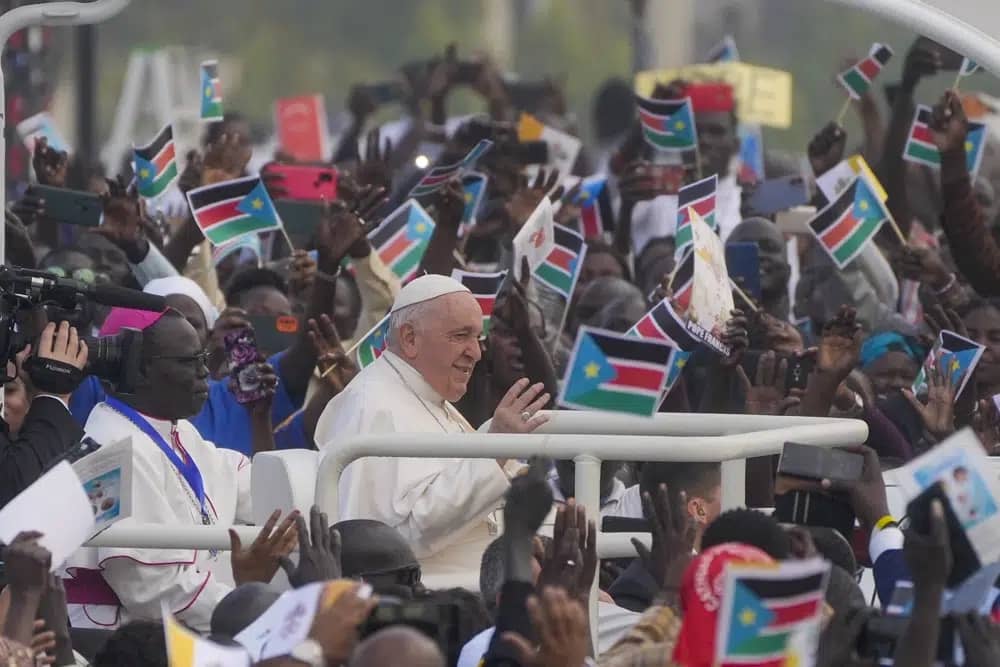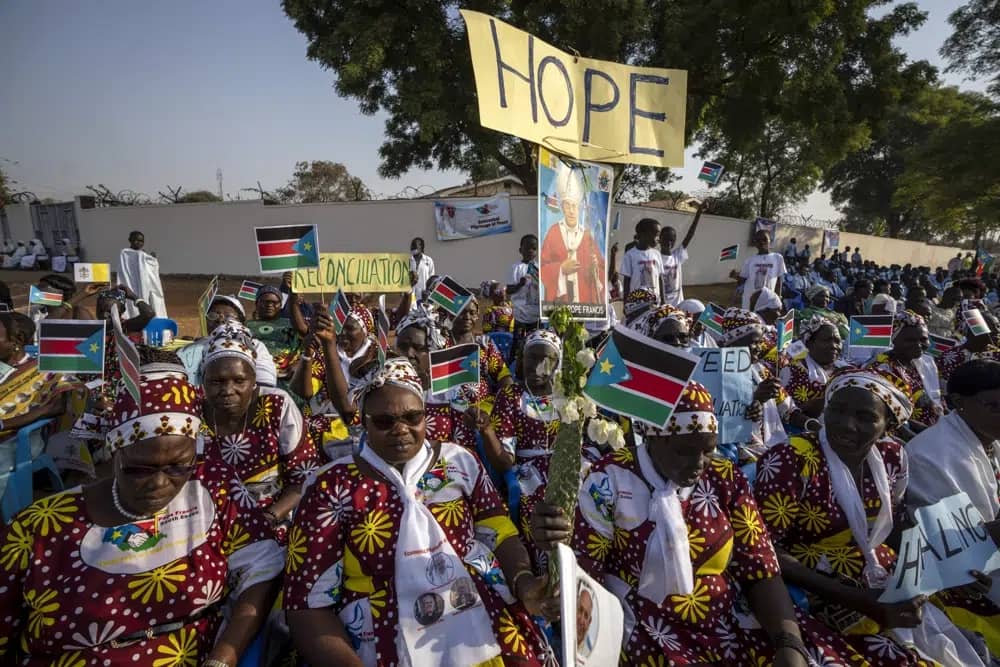JUBA – In one of his final events in South Sudan this week, Pope Francis led an ecumenical prayer service with other Christian leaders Saturday, stressing joining forces in promoting peace as well as solutions to the country’s other crippling problems.
Speaking to faithful from different Christian denominations, the pope said that, “From this beloved land, wracked by violence, many prayers have now been raised to heaven.”
“Many different voices have united to form a single voice. Together, as God’s holy people, we have prayed for this people and its suffering,” he said.
Pope Francis’s visit to Juba is the final leg in a two-stage journey that has also taken him to the Democratic Republic of Congo in a bid to comfort and encourage the two war-torn nations.
His stop in South Sudan is an ecumenical visit alongside the Archbishop of Canterbury, Justin Welby, and the Moderator of the Church of Scotland, Iain Greenshields, both of whom joined him earlier on Saturday for a meeting with displaced people.
Together, the faith leaders led a prayer service for Catholic, Anglican, and Presbyterian Christians in Juba’s John Garang’s Mausoleum, named after a Sudanese politician who died in a helicopter crash in 2005, and who was active in the movement that led to the eventual foundation of South Sudan as an independent republic.
Pope Francis stressed the importance of prayer, saying that as Christians, “Prayer is the first and most important thing we are called to do in order to work for the good and to find the strength needed to persevere on our journey.”
“Prayer gives us the strength to go forward, to overcome our fears, to glimpse, even in the darkness, the salvation that God is even now preparing. Moreover, prayer brings down God’s salvation upon the people,” he said.
Christian leaders in particular, he said, are called not just to pray together, but also intercede for their people, just as Moses did when he was fleeing the Egyptian army, he said.
In South Sudan, this prayer is for God “to intervene where men and women are powerless to bring about peace: a tenacious and constant prayer of intercession,” he said, urging faithful to support one another in their prayer efforts.
“In the diversity of our confessions, let us feel united among ourselves, as one family, responsible to pray for everyone,” the pope said, and asked people to pray specifically that “equitable provisions will be made for the use of its rich and fertile land and that the country will be crowned with the promised peace that, sadly, has yet to come.”
Pope Francis also stressed the importance of not just praying, but working together for peace, saying God wants Christians “to be not only a sign and instrument of intimate union with God but also of the unity of the entire human family.”
The peace that God wants, he said, is not merely a truce to end conflicts, but rather “a fraternal fellowship that comes from uniting and not absorbing; from pardoning and not overpowering; from reconciling and not imposing.”
“Let us work tirelessly, dear brothers and sisters, for the peace that the Spirit of Jesus and the Father urges us to build: a peace that integrates diversity and promotes unity in plurality,” he said.
True peace, he said, “harmonizes differences, whereas the spirit hostile to God and humanity uses diversity as a means of division.”
He challenged believers in this regard, saying “those who would call themselves Christians must choose which side to take.”
“Those who choose Christ choose peace, always; those who unleash war and violence betray the Lord and deny his Gospel,” he said, saying, “What Jesus teaches us is clear: we are to love everyone, since everyone is loved as a child of our common Father in heaven.”
Christian love must extend not only to friends and those they are close to, but also to one’s enemies, Francis said, saying this is all the more true for “those who are members of the same people, albeit belonging to different ethnic groups.”
He thanked various Christian communities for their involvement in the peace and reconciliation process, saying that, “Prior to any historical divisions there remains one unchanging fact, namely, that we are Christians; we belong to Christ.”
“It is a beautiful thing that, amid situations of great conflict, those who profess the Christian faith have never fragmented the people but have been, and continue to be, a factor of unity,” he said.
South Sudan’s history of collaboration among Christian communities is an example for the advancement of Christian unity, he said, as well as a remedy for tribalism.
“The ecclesial divisions of past centuries should not have any impact on those who are being evangelized, and the spread of the Gospel ought to contribute to the growth of greater unity,” he said, asking that “the tribalism and the partisan spirit that fuel acts of violence in this country not impair relationships between the various confessions.”
“On the contrary, may the witness of unity among believers overflow to the people as a whole,” the pope said.
Pope Francis stressed the need to work together for the poor, who make up the bulk of South Sudan’s population of roughly 11 million, saying, “we journey towards unity when love is concrete, when we join in coming to the aid of the outcast, the wounded and the disenfranchised.”
To this end, he praised the contributions the country’s various Christian communities make to healthcare, education, and charitable outreach.
“Let us set out each day by praying for one another, by working together as witnesses and mediators of the peace of Jesus, and by persevering in the same journey by our practical acts of charity and unity,” he said.
Follow Elise Ann Allen on Twitter: @eliseannallen
